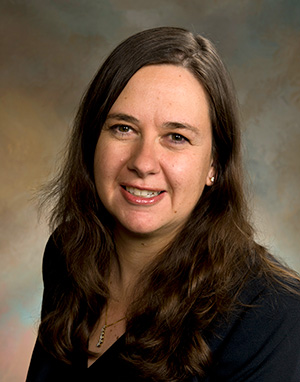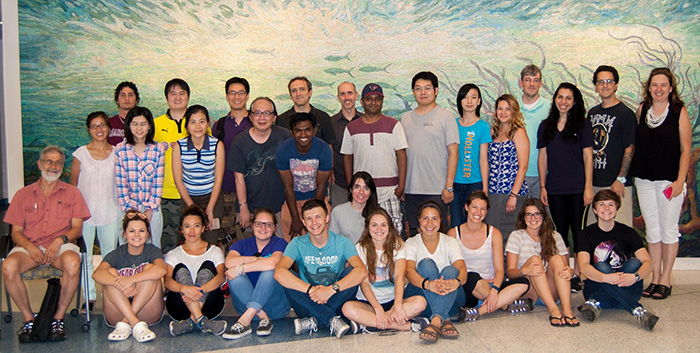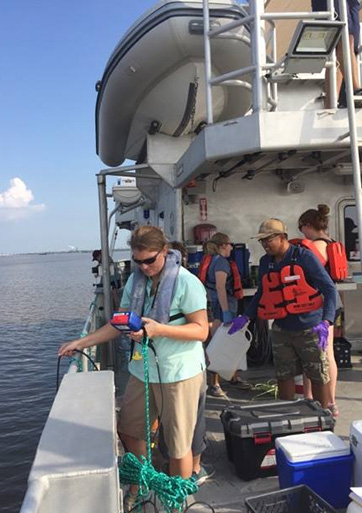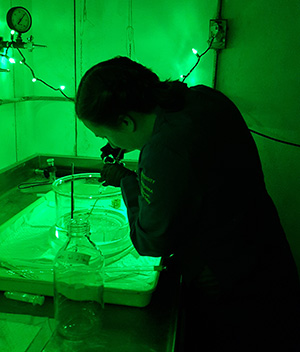Consortium led by Texas A&M Galveston awarded $2.54 million to continue research on the effects of the Deepwater Horizon oil spill
 A research consortium led by Dr. Antonietta Quigg, professor of Marine Biology and associate vice president for Research and Graduate Studies at Texas A&M’s Galveston campus, was awarded $2.54 million by the Gulf of Mexico Research Initiative (http://gulfresearchinitiative.org/) to conduct scientific studies of the impacts of oil on the Gulf of Mexico ecosystem and public health. This research will continue the study the effects of the April 2010 Macondo well blowout, also known as the Deepwater Horizon oil spill, and will focus on improving our fundamental understanding of the implications of such events and on developing improved spill mitigation, oil and gas detection, characterization and remediation technologies. It is part of a grant funded by British Petroleum to 8 research consortia supporting research to be carried out from 2018 through 2019.
A research consortium led by Dr. Antonietta Quigg, professor of Marine Biology and associate vice president for Research and Graduate Studies at Texas A&M’s Galveston campus, was awarded $2.54 million by the Gulf of Mexico Research Initiative (http://gulfresearchinitiative.org/) to conduct scientific studies of the impacts of oil on the Gulf of Mexico ecosystem and public health. This research will continue the study the effects of the April 2010 Macondo well blowout, also known as the Deepwater Horizon oil spill, and will focus on improving our fundamental understanding of the implications of such events and on developing improved spill mitigation, oil and gas detection, characterization and remediation technologies. It is part of a grant funded by British Petroleum to 8 research consortia supporting research to be carried out from 2018 through 2019.
Texas A&M University System Chancellor John Sharp said the GoMRI grant reflects the strength of the programs at Texas A&M University at Galveston and the important research of Dr. Quigg and others. “It is our mission at Texas A&M University at Galveston and across the System to keep Texans and the Gulf of Mexico as healthy as possible,” Chancellor Sharp said. “I appreciate this generous grant to help us continue to conduct our important work.”
Dr. Quigg’s project entitled “Aggregation and degradation of dispersants and oil by microbial exopolymers – ADDOMEx2”, focuses on developing a better understanding of the molecular-level chemistry of sparingly-soluble substances in complex systems and the associated microbial communities. Research supported thus far by GOMRI as part of ADDOMEx can be found at https://www.tamug.edu/phytoplankton/projects/addomex/.

“We will continue to investigate the impacts of spilled oil and dispersants on the formation of an extracellular materials produced by marine microbes; this marine snow and marine oil snow, is thought to be instrumental in determining the fate of oil,” said Dr. Quigg.
“Dr. Quigg’s work is critical to adding to our knowledge about the impacts of oil spills in the Gulf of Mexico,” says Texas A&M President Michael K. Young. “We congratulate her on this grant and know that this research will greatly benefit Texans and all populations along the Gulf on several levels.”
“The Deepwater Horizon oil spill was a tragedy for everyone near the Gulf of Mexico and to this day we are still learning it’s impact on our marine environment,” said Col. Michael Fossum, chief operating officer at Texas A&M University at Galveston. “I am proud that our team, which is made up of graduate and undergraduate students, interns and many of the finest researchers in the world, leads this important research.”


Dr. Quigg’s consortium comprises 5 other collaborating institutions. At Texas A&M University, researchers from Marine Biology (Quigg), Marine Science (Peter Santschi), Oceanography (Jason Sylvan) and the Geochemical and Environmental Research Group (Tony Knap and Dr. Terry Wade), will be working with those at the University of California – Merced (Wei-Chun Chin, Mount Allison University, Canada (Zoe Finkel and Andrew Irwin), the University of California Santa Barbara (Uta Passow), Old Dominion University (Patrick Hatcher) and University of New Hampshire (Kai Ziervogel).